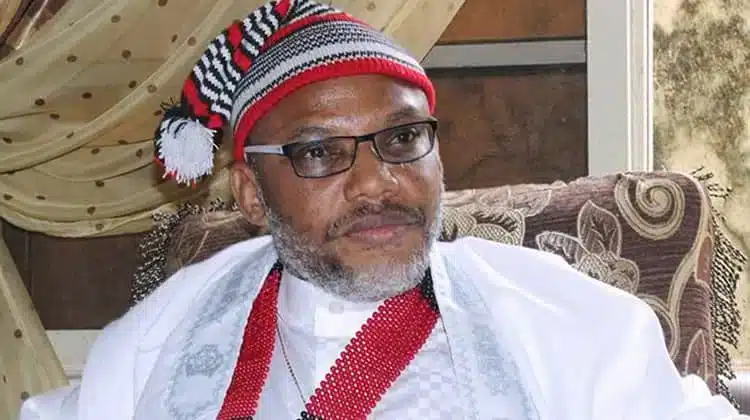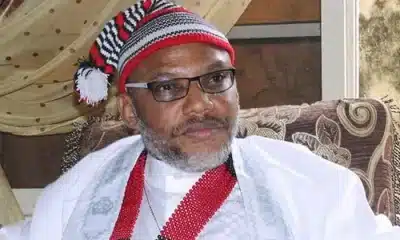Nigeria News
‘Only Court Can Decide His Fate ‘ – FG Speaks On Possibilities Of Releasing IPOB Leader Nnamdi Kanu

The Attorney-General of the Federation, Lateef Fagbemi, has declared the case of Nnamdi Kanu, the detained leader of the proscribed Indigenous People of Biafra (IPOB), as particularly challenging and one that only a competent court of law can resolve.
Naija News reports that this statement came during the Sectoral Ministerial Briefing marking the first anniversary of President Bola Tinubu’s administration.
Addressing journalists in Abuja on Friday, Fagbemi emphasized the complexity of Kanu’s legal situation, stating that with the matter already before the courts, it was prudent to allow the legal process to unfold.
He noted a significant difference between the cases of Kanu and Omoyele Sowore, underscoring that Kanu’s detention aligns with constitutional provisions and judicial oversight.
“The matter is sub judice, and as such, we must let the law take its course,” Fagbemi explained.
In further discussions, the Attorney General revealed that under the current administration, the Federal Government has secured 250 convictions across various criminal offences, including terrorism.
This record, he noted, underscores the administration’s commitment to upholding law and order.
In a recent development in the ongoing saga, Kanu’s legal team filed a Preliminary Objection at the Federal High Court, Abuja.
The team, led by a notable lawyer, questioned the jurisdiction of Justice Binta Nyako to continue the trial on several counts, citing constitutional concerns and previous international tribunal decisions.
The objection specifically challenges the applicability of the laws under which Kanu is charged, arguing they have either been repealed or are unsupported by sufficient evidence.
Moreover, they argue that certain counts are attempting to retroactively criminalize actions that were not offences at the time they were committed.
On Monday, Justice Nyako ruled against Kanu’s request for bail restoration and transfer from DSS custody, maintaining that the stringent measures were justifiable under the circumstances.












